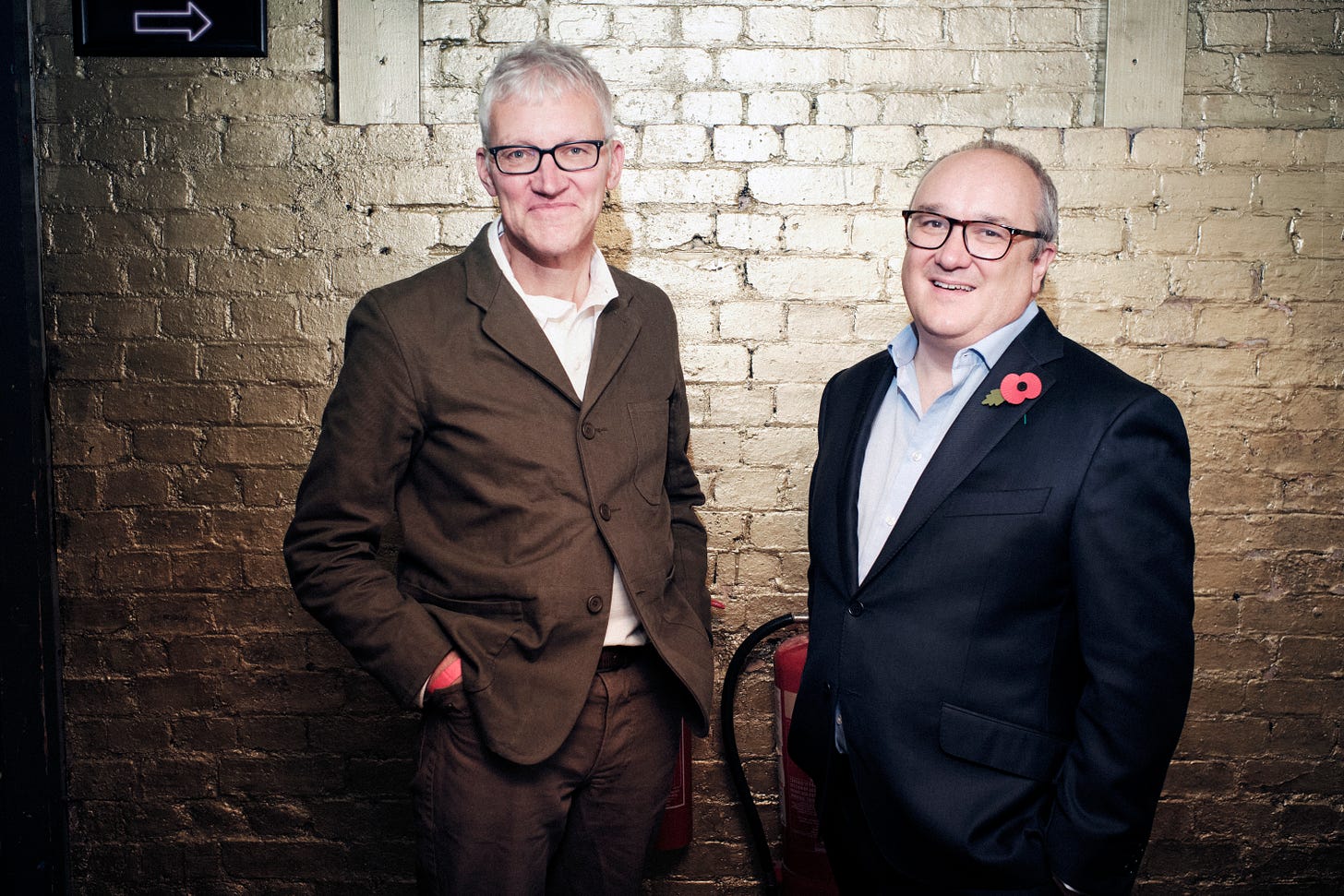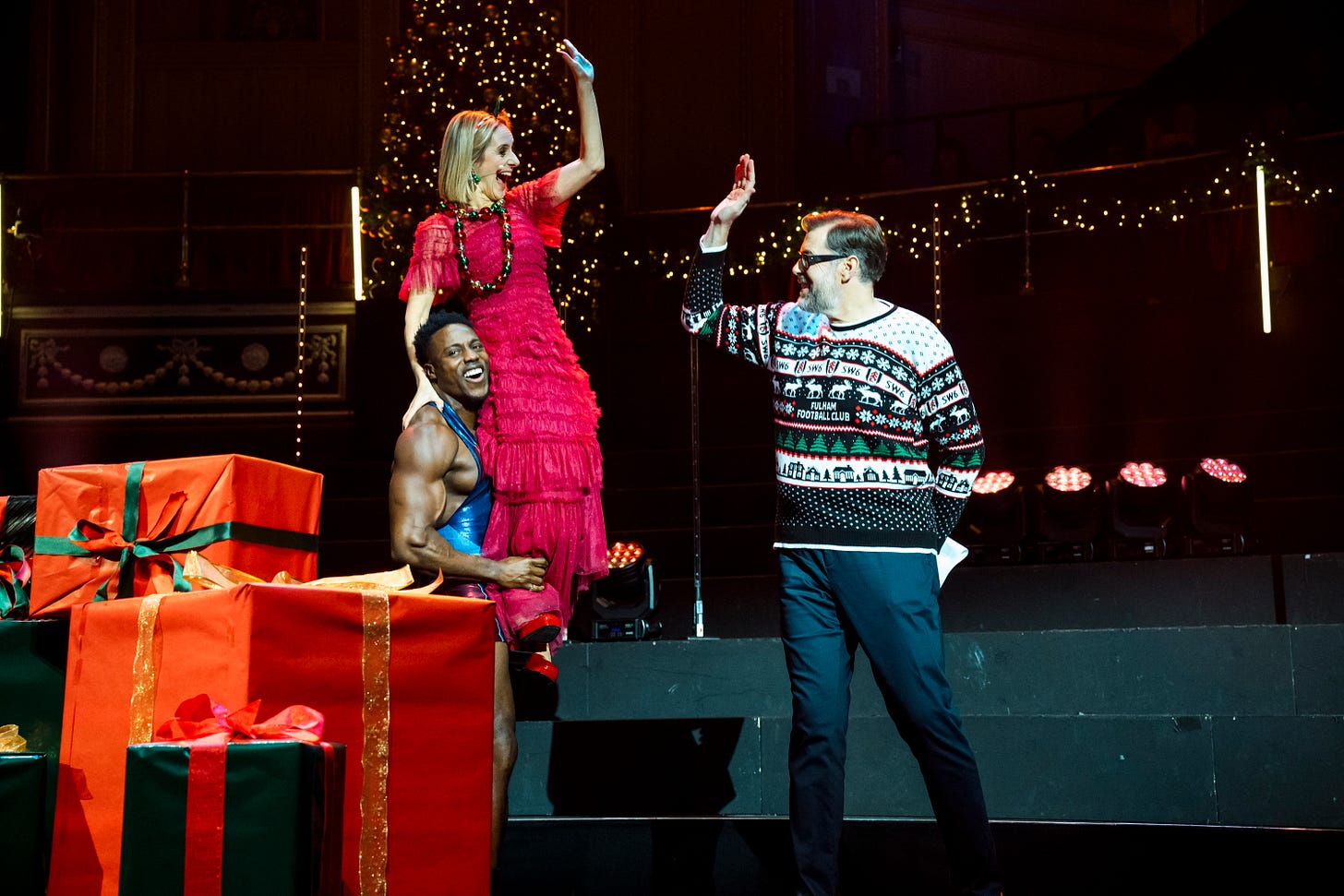Indie Insights: the playbook that shot Goalhanger to success
An exclusive interview with indie boss, Goalhanger’s Tony Pastor
Welcome to The Indie Hustle
Indielab is thrilled to launch The Indie Hustle—a brand-new Substack from the team behind the Indielab Innovation Awards, TV Accelerator and GrowthLab London. Our first Substack is an exclusive interview with indie boss of the month, Goalhanger’s Tony Pastor.
Goalhanger recently celebrated one billion streams of its podcasts. The entity behind hits including The Rest Is History, The Rest Is Politics, The Rest Is Entertainment and The Rest Is Football has found an international, multi-platform, multi-generational seam of content gold.
The company’s 12 podcasts reach tens of millions globally each month across long-form audio and video and through live events.
Co-founder Tony Pastor was once an ITV sports executive, then owned a TV indie with a sports focus before helming the podcast powerhouse.
“If you don't want to be dependent on the vagaries of the commissioning model for the rest of your working lives, you have to find a way to bypass it,” he advises. “We've been lucky and figured out a way.”
There’s a lot more than luck involved. While Pastor has slipped free from the shackles of the traditional indie business model, he’s had a new set of challenges to make the podcast business profitable, which includes re-introducing video into the mix.
With indies needing to create multiplatform content and wanting to monetise what they already have in every conceivable way, Pastor’s journey with Goalhanger and its future plans make for essential reading.
He shared some of the secrets of success with Indielab, giving key insights into:
Keeping talent close, the Goalhanger way
The ins and outs of monetising content
How video can bring in new business
Surprise learnings along the way
Subscribe for free to read on.
The Indie Hustle - Indie Boss
The Indie Hustle’s first indie boss of the month is someone who was part of the first Indielab Accelerator programme. Tony Pastor has gone on to diversify from TV production in a spectacular way, taking Goalhanger, the indie that he co-founded, to the top of the podcasting charts and carving out new ways to make and monetise content.
A talent for casting
The current Goalhanger business model is talent dependent.
One of the co-founders alongside Pastor when Goalhanger began as Goalhanger Films in 2014 was Gary Lineker. But that wasn’t an automatic golden ticket.
The old-style Goalhanger worked along conventional commissioning lines, and, including overseas sales income, reached £2.5million/£3m turnover.
Pastor was a podcast fan and recalls the lightbulb moment: “One of my producers said, ‘Why aren’t we making any pods? Why, when we’ve got Gary Lineker on our books, are we not even making a football pod?’
“We thought we’d experiment and what we discovered was an entire new business model.” The rest, as they say, is history.
The indie relaunched as Goalhanger Podcasts in 2018 and did talent deals at the outset: “It meant that the risk for us was relatively low at the start, we did a lot of revenue sharing. We bought people into our idea, so we didn’t have to offer massive minimum guarantees.”
They have built on existing relationships. For example, Lineker is teamed with Alan Shearer and Micah Richards for The Rest Is Football; Rory Stewart and Alastair Campbell host The Rest Is Politics.
Everything flows from the talent, explains Pastor: “You have the key partnership between the hosts at the top of the show, the tent pole. And there’s an ecosystem underneath it of content which deepens the engagement with the brand.”
Takeaways: work the equity-sharing model; make the most of the talent you’ve got; leverage existing talent
Many different ways to monetise content
“Podcasts these days are not just audio, they are video, they’re social, they’re live events, they’re merchandise, they’re book licences. They have a really big business infrastructure, multiple revenue lines. You have to be smart, because it's not easy,” explains Pastor.
The ad revenue for podcasts is pinned to CPMs (cost per thousand). You can get income from third-party ads, but significantly more from what used to be called product placement. Presenters doing ‘host-read’ ads get an amount per thousand listeners.
“Your talent’s voice is really valuable.” As long as you can get enough scale. “There’s a volume element: you’ve got to get enough people listening. Or, you have to get a community of people who love your content so much they want to have an even closer relationship.”
Goalhanger’s subscription/membership model gives opportunities for ad-free, early access to content and bonus episodes, such as a four-parter on JD Vance for The Rest Is Politics.
“One of the beauties of podcasting is you can find a community of people who adore one thing and you can super serve them,” says Pastor. Goalhanger found if just 1% of listeners pay for content, it starts to become a significant revenue line.
They figured out the lifetime value of each subscriber to The Rest Is History (£108) and how much to spend on content that would drive subscription: “If you spend £20K making a series that puts 1,000 members on, you've got a fantastic internal commissioning model.”
He reveals, “the next iteration of our business” is to “potentially commission third parties to make content for us - but very specifically for this very dedicated audience.”
What’s the next podcast idea from Goalhanger? “We want to do something else that works in the US”, is Pastor’s reply – unsurprising given US podcast ad revenue is now over £2bn annually, according to the Interactive Advertising Bureau
Takeaways: monetise your talent’s voice; work direct to consumer with a subscription model; capitalise on the US market
Watching podcasters talking is good business
Goalhanger started adding video after Pastor heard a US podcaster three years ago discussing watching podcasts. They tried it first with The Rest Is Football, adding video to existing audio and found it didn’t cannibalize the podcast’s audiences, just added new ones.
Investing in a production team, robot cameras and studio space to ensure high-quality video has paid off: around 45% of YouTube video viewing of Goalhanger shows is on smart TVs.
Having video on different platforms enables valuable deals with advertisers.
The realisation came when Walkers wanted to do a deal around Christmas with The Rest Is Entertainment hosts giving each other Secret Santa gifts of different-flavoured Christmas crisps. A £20k budget for audio became £100k when you added in YouTube and socials. “Instead of talking to the youngest, newest employee at the media agency who's been given podcasts to worry about and a tiny budget, you're suddenly knocking on the door halfway down the corridor of the person who wants partnerships and they've got a much bigger budget.”
Another signal of its video success: Goalhanger recently secured a deal with sports streaming service DAZN to include FIFA Club World Cup footage in The Rest Is Football.
Takeaways: video can add viewers audience without cannibalisation; more platforms can widen the potential for more lucrative advertising partnerships
Surprise learnings along the way
While received wisdom is that attention spans are shortening, the average listening time for listens and views of Goalhanger podcasts is over 40 minutes.
Goalhanger’s listeners are cross-generational. About half the audience for The Rest Is History and The Rest Is Politics is under the age of 35.
The informal tone of ‘The Rest Is’ has wide appeal; The Rest Is History has found a massive international footprint and tops the US, UK, Canadian and Australian history podcast charts.
The podcast market keeps growing. In the UK, it’s still considered immature at around £90m a year in audio revenue, according to IAB estimates. But, given that it’s a passport into partnership deals, Pastor believes that the opportunity is far greater.
Goalhanger’s drama Sherlock & Co, “has an almost entirely teenage, female audience. We had no idea that would be the case.”
Takeaways: Don’t make assumptions about dwindling attention spans or what content younger people want to consume; there’s still opportunity in podcasting









